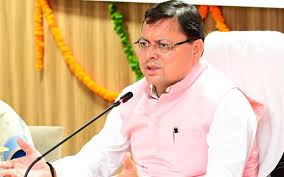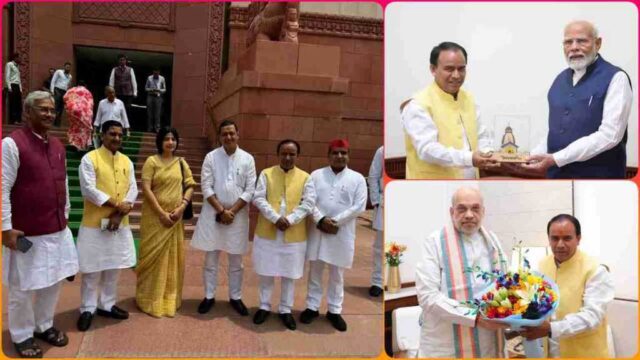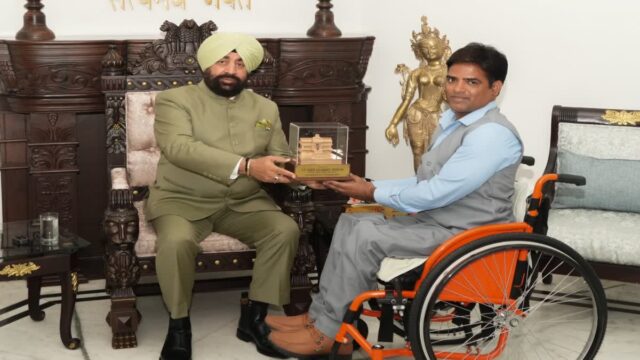Uttarakhand : Sunderlal Bahuguna passed away, the environmental lover who gave the edge to the Chipko movement, has made his entire life aware

Sunderlal Bahuguna, the country’s famous eco-lover, is no longer among us. He was undergoing treatment for corona at AIIMS. But they will always be remembered through the Chipko movement. He turned this movement into a mass movement started with the aim of providing security to trees. On his call, the local people in Uttarakhand stood up by sticking to them to prevent the trees from being cut down. He inspired people not only to protect the country but also for the preservation of all the forests on this earth. Talking about the Chipko movement, its echo was heard outside India and was also heard abroad.
Sunderlal Bahuguna had a deep attachment to rivers, forests and nature. He considered ecology to be the most profitable deal. He was also in favor of putting small projects in Uttarakhand to meet the power requirement. However, he was not in favor of big projects like Tehri in this hilly state. In protest against this, he also started the movement. In order to save the environment, he stressed on protecting forests. He gave the slogan ‘Dhar anch daal, bijli banava khala-khala.’ This meant that more and more trees should be planted in high altitude areas and electricity should be fulfilled by setting up small projects in low-lying areas of the state.
Born on 9 January 1927 in Garhwal, the ancestors of Bahuguna put bandhodhyay behind their names. His ancestors had migrated to Garhwal from Bengal years ago. He was not only an environmentalist but also a social reformer. He raised his voice against untouchability. Apart from this, he started a movement against alcohol in Uttarakhand between 1965-70. At an early age, he started taking interest in social work. He had also protested and agitated against the colonial rule before India’s independence. He was greatly inspired by Mahatma Gandhi. That is why he followed his ideals and followed his stated path.
Where Bahuguna lived, he built an ashram there. Taking inspiration from Gandhi, he traveled about 4700 km on foot in Uttarakhand itself. During this time he focused his attention on the places which were destroyed or destroyed due to the big project. He raised his voice against this and also warned that this would spoil the ecological balance of the region.
On 26 March 1974, he started the Chipko movement. In order to save the greenery of the mountains, he toured the entire mountainous region on foot during 1981-83. During this time he went from village to village and inspired people for environment. He undertook a fast for 45 days against the Tehri dam. The fast came to an end only after Prime Minister PV Narasimha Rao’s assurances. Not only this, he had traveled for 74 days on foot to Rajghat in Delhi against this project. After this, he was asked by the then Prime Minister Deve Gowda to focus on this project himself. He fought a legal battle against the Tehri dam. After Tehri’s work started after the court’s order, he also strongly opposed it. As a result, he was arrested in April 2001.
Where Bahuguna lived, he built an ashram there. Taking inspiration from Gandhi, he traveled about 4700 km on foot in Uttarakhand itself. During this time he focused his attention on the places which were destroyed or destroyed due to the big project. He raised his voice against this and also warned that this would spoil the ecological balance of the region.
Chief Minister Mr. Tirath Singh Rawat has expressed deep condolences on the demise of world famous environmentalist and Padmavibhushan Mr. Sundarlal Bahuguna ji. The Chief Minister said that the death of Shri Sunderlal Bahuguna, who made the Chipko movement a mass movement, is an irreparable loss not only to Uttarakhand and India but also to the whole world. This vacancy in the field of social causes and environment will never be filled. May God grant the departed soul a place in its shrines, and give the grieving family the strength to endure patience and sorrow.




